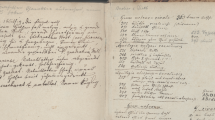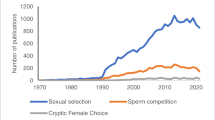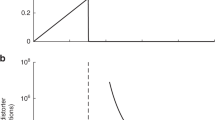Abstract
IN NATURE of Feb. 26, Prof. Johnstone asks the question, “Is breeding cats, and cocks and hens, and flies, and so on, such fundamental research?” He might equally well ask, “Is reading galvanometers, or making organic compounds, or cutting sections, or stimulating nerves, such fundamental research?” The answer is quite clear. These operations, like breeding animals, are part of the technique of research, which may or may not be fundamental in any given case. For example, cat-breeding was part of a fundamental research when it showed that the spermatozoon determined the sex of the young, and that some of the differences between the wild species (or subspecies) of cat were inherited in a Mendelian manner.
This is a preview of subscription content, access via your institution
Access options
Subscribe to this journal
Receive 51 print issues and online access
$199.00 per year
only $3.90 per issue
Buy this article
- Purchase on Springer Link
- Instant access to full article PDF
Prices may be subject to local taxes which are calculated during checkout
Similar content being viewed by others
Author information
Authors and Affiliations
Rights and permissions
About this article
Cite this article
HALDANE, J. Biological Fact and Theory. Nature 119, 456–457 (1927). https://doi.org/10.1038/119456b0
Issue Date:
DOI: https://doi.org/10.1038/119456b0
Comments
By submitting a comment you agree to abide by our Terms and Community Guidelines. If you find something abusive or that does not comply with our terms or guidelines please flag it as inappropriate.



